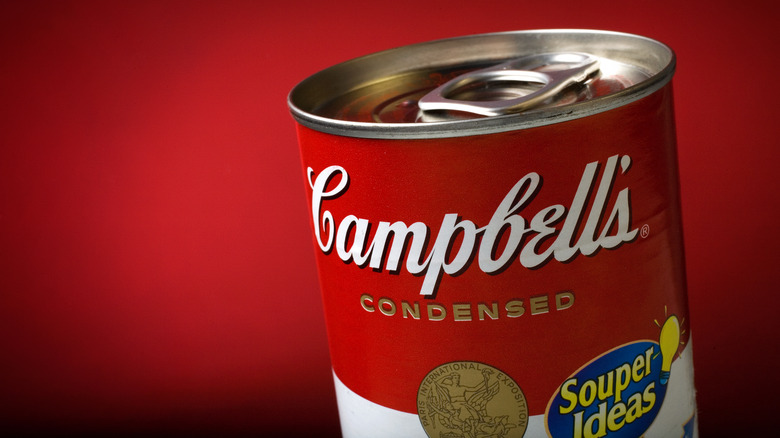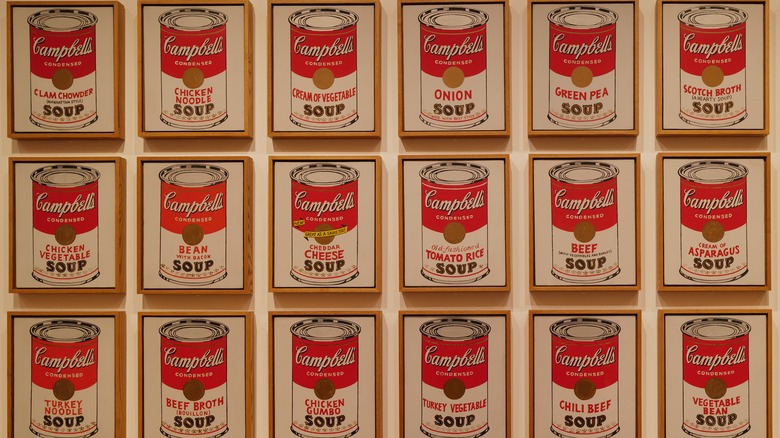Why The Campbell Soup Company Wants To Change Its Name After More Than A Century
The iconic Campbell Soup Company is shifting gears and proposing to change its name in the process. The company originated in 1869 at the hands of Joseph Campbell and adopted the title of Campbell Soup Company in 1922, just over a century ago. Not to be outpaced by the competition, Campbell Soup Company has been buying up snack brands like Goldfish and Pepperidge Farm in recent years. As a nod to its expansion into non-soup food brands — and pending shareholder approval — the company will be known as The Campbell Company; simply dropping soup from the name.
The Campbell Company isn't going to stop selling its various canned soup products, but the transition away from its historic roots in soup is quite telling. As with all major companies like this, the most economically pragmatic approach is to simply follow the money. In 2023, Campbell's snack product sales increased by 13% while its soup sales increased by a relatively meager 3%. That's a fourfold increase in sales for snacks over soup, so in some sense, it's no wonder that the company is pivoting.
In practical terms, the name change means very little for consumers. Campbell's soup will still be available on the shelves with the same packaging Andy Warhol painted all those years ago. The company seems keen to retain its brand recognition despite the proposed name change, which suggests this move is more symbolic than substantive. After all, the company has been pivoting to snack brands for several years now.
Campbell's name change is indicative of our current economy's troubles
Despite the change being essentially symbolic, the expansion of Campbell into other food categories is indicative of a trend in the American economy that's been playing out over the last three decades: corporate consolidation. It seems like not a year goes by where a major merger of two companies isn't taking place. The merger of Kroger and Albertsons comes to mind.
As for The Campbell Company, it's been on a buying spree of late. Campbell purchased Sovos Brands earlier this year, during which it promised consumers it wouldn't alter the Rao's Marinara recipe it had acquired. But while altering recipes of beloved products would be unfortunate, it isn't so much the individual food items being changed that's at issue here.
The problem with a handful of companies dominating the American food industry is that, at some point, the fundamental force of competition that makes a market economy function begins to deteriorate or disappear. There's a reason our ancestors engaged in trust busting. If only a handful of major players are sitting at the table, any new idea that could improve the market can be bought up and neutralized before it can challenge the current hegemony. A healthy market economy simply cannot function properly if new business leaders are crushed by a stale managerial class which favors consolidation over innovation. The name change is just another symbolic step towards a less innovative future.

